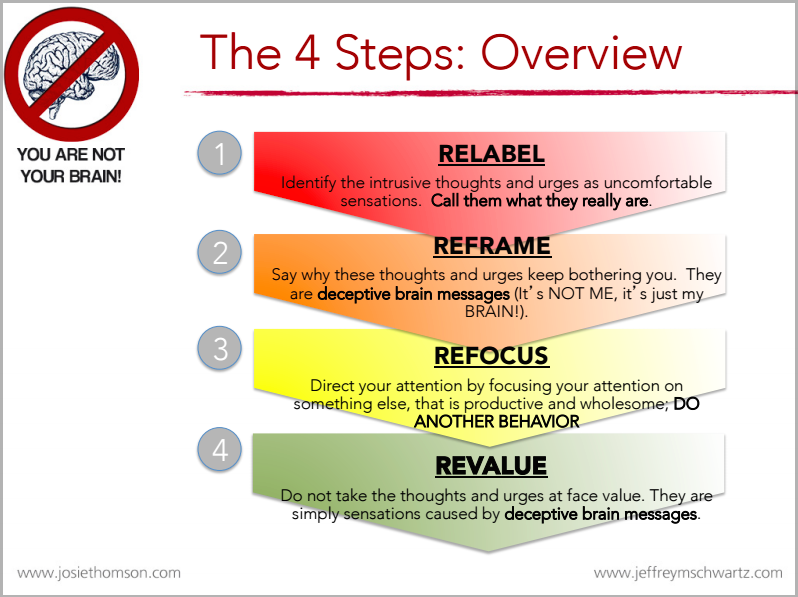Free Your Mind With Mindfulness
Are Bad Habits and Unhealthy Thinking Taking Control Of Your Life? Try Mindfulness…
Have you ever been on a train that is stationary at the platform and felt as though you were already moving because the train next to you started to pull away? That is how we often experience our thinking.
The reality is that we are just human beings having thoughts in a relatively still world, but those thoughts can create the illusion that we are being swept away in the fast moving current of our busy lives.
When our perception of our world is that it’s becoming busier and more chaotic, we’re more and more likely to turn on ‘auto-pilot’ and let our unconscious mind do all our thinking for us.
This can have a profound impact on our lives, as it increases the likelihood that we’ll let bad behaviours that we’d normally have control over, slip by. And when this happens repeatedly within a short time frame, we start developing bad habits.
One of the best ways to combat this, and one of the things I will often recommend to clients is that they build moments of peacefulness and calm into their daily routine. The act of doing this is referred to as ‘mindfulness’ or ‘mindful awareness’.
There are two primary reasons for why I recommend this:
- Firstly, there are undeniable benefits to health and wellbeing that accompany the act of deliberate relaxation, particularly if their busy lives feel stressful to them; and
- Secondly, by taking time to enjoy a moment of peace and calm, it becomes a lot easier to see the link between thought and feeling, which inevitably creates a doorway to a deeper and wiser level of understanding and awareness.
What is Mindfulness?
The best way I can describe mindfulness is that it is what happens when all of your senses get really curious about what you are doing… when you can focus on the present and notice something new.
For many years I have wanted to show how the use of mindful awareness could be applied easily to day to day living to improve quality of life, experience deeper fulfillment and achieve greater success.
It seemed clear to me from my experiences of unnecessary stress and overcoming cancer twice that breaking bad thinking habits can be effectively and relatively easily done. So too was it clear for my friend and renowned neuroscientist Dr Jeffrey M Schwartz in his work with OCD sufferers, that breaking bad habits which is the core problem in the brain circuitry of people with OCD, was a great target application for applied mindfulness.
Dr Schwartz developed a 4-step solution specifically to make the use of mindful awareness user friendly for any person to enable both increased function through creating new habits to replace old maladaptive ones, and to rewire the powerful habit centre in the brain. You can read more about this in his latest book You Are Not Your Brain, which I highly recommend to you.
Essentially the 4 Steps are:

The key point that describes why the 4 Steps are successful is that they combine the use of proven cognitive methodologies with mindful awareness, directly applied to inform empowered choices about how to focus one’s attention in ways that lead to new adaptive habit patterns and a rewired brain. This results in having a brain that now works with you instead of against you in achieving your true goals and life purpose.
Habits are hard to break because they get wired in to the very powerful habit centre in the brain which we share with all lower animals. The key point about the function of this brain area is that it controls behaviour beneath the level of conscious awareness.
Therefore, habits are hard to break because to a significant degree, we are unaware of when they are operating i.e. by the time we realize the behaviour is a problem, the behaviour has often already been initiated or even completed.
With mindfulness we can much more readily become aware of this process and be significantly empowered to change the focus of attention in ways that literally rewire the brain’s habit centre to work for us instead of against us.
This process is called self-directed neuroplasticity. You don’t have to be a product of your habits! With practice of the 4 Steps, you will realize that You Are Not Your Brain!
Master the 4 steps in our ‘You Are Not Your Brain’ Masterclass – starts this week!
You’ll also learn:
- What deceptive brain messages are, how to identify them as they occur and tips for handling them effectively.
- How you can manage negative self talk by using attention, focus and mindfulness to think more positively and intentionally.
- Free Will vs. Free Won’t and how to exercise your veto power!
- What the 4 steps are and how you can start using them in your everyday life to change bad habits and put an end to unhealthy thinking.


